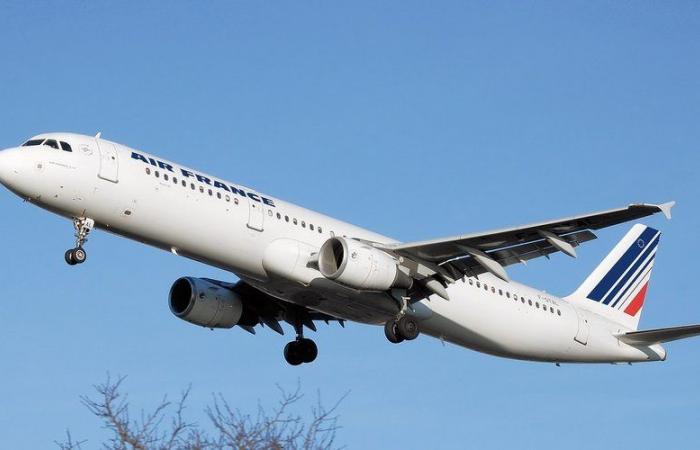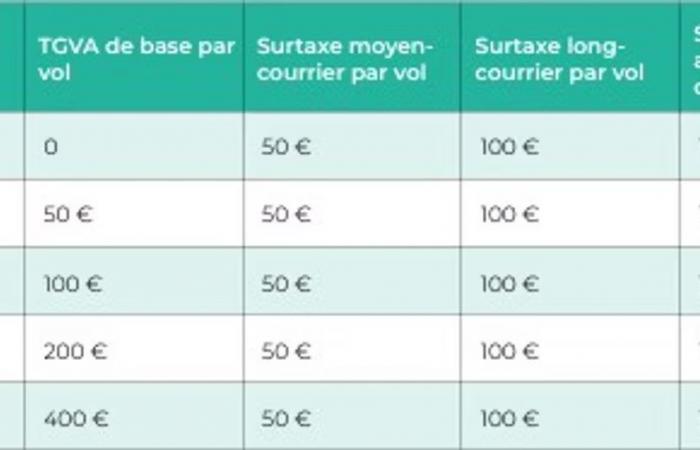The debate on air transport taxation is intensifying in Europe.
Several environmental organizations are proposing the establishment of a “frequent air passenger tax” (TGVA) to reduce emissions from the sector while generating additional revenue.
This tax would specifically target people making numerous flights per year, generally from the wealthiest social categories. According to a report from the New Economics Foundation published this Thursday, October 17, in Western Europe, households with incomes above €100,000 per year are at least six times more likely to make three or more round trips per year than those earning less. of €20,000.
Nearly 64 billion euros
According to these projections, the implementation of such a tax in 2028 could reduce CO2 emissions from the European aviation sector by 21% while only penalizing “4.5% of the population of Western Europe”. Such a tax would also reduce the number of passengers in air transport by 26%.
What’s more, this TGVA should generate up to 63.6 billion euros in additional tax revenue for European states, an increase of 607%.
New Economics Foundation
Like the idea launched by the Climate Action Network, the taxation advocated by the New Economics Foundation would be indexed to the number of flights per year, the distance and the class reserved by the traveler.
New Economics Foundation
Less than one in four French people
The tax would only affect a minority of frequent travelers. “In most Western European countries, between 75 and 80% of the population would not be affected by the TGVA, because they do not fly at all or only make one round trip by plane per day. year,” the report said. In France, less than a quarter of the population (22.4%) would be likely to pay it at least once a year.
Supporters of the TGVA see it as a complement to other measures, such as a tax on kerosene. They believe it would make climate action more equitable and acceptable to the public.
Business







